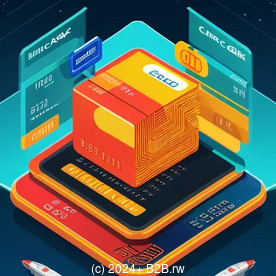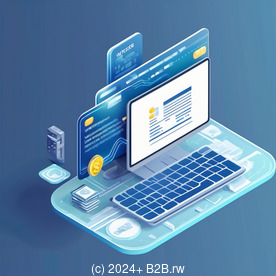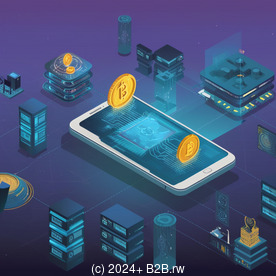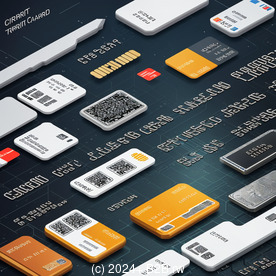
Bill Pay System Setup for Businesses using Bill.com




Understanding Bill Pay System Setup
A Bill Pay System Setup refers to establishing an automated mechanism for processing payments on behalf of a business through platforms like Bill.com . This solution streamlines invoicing and payments, enhances cash flow management, and drastically minimizes human errors associated with financial transactions. In an age where efficiency and transparency are paramount, implementing such systems is critical to modern businesses striving to maintain competitive advantages in their respective industries.
The significance of a Bill Pay System extends beyond mere convenience. Businesses today face increasing pressure to reduce operational costs while improving service quality and efficiency. Manual payment processing can be cumbersome and error-prone, with potential repercussions that can involve financial penalties, damaged supplier relationships, and even legal ramifications. Automated bill payments address these challenges by ensuring timely transactions, thus solidifying the businesss reliability and trustworthiness in the eyes of suppliers and service providers.
Moreover, with the complexities of modern financial landscapesfrom varying payment schedules to multiple vendors the automation offered by Bill Pay Systems can be invaluable. Each automated transaction not only provides peace of mind but also facilitates better cash management strategies for businesses dealing with fluctuating revenues. By eliminating the need for manual checks, businesses can allocate resources more effectively and focus on strategic initiatives that drive growth.




The Importance of Bill Pay Systems
Implementing a Bill Pay System using Bill.com presents numerous economic and operational advantages, thereby empowering businesses to reach their financial goals more effectively.
- Improved Cash Flow Management: Automated payments guarantee that bills are paid promptly, averting penalties and late fees that can significantly disrupt a business's cash flow. Timely payments not only maintain operational continuity but also build a strong rapport with vendors, who may offer more favorable payment terms or discounts in return.
- Enhanced Operational Efficiency: The adoption of an automated payment system reduces the time and human effort involved in manual data entry and invoice review, resulting in freeing staff to focus on core activities such as strategy, customer relations, and innovation. By minimizing the administrative burden, businesses can operate more efficiently, contributing to higher productivity.
- Cost Savings: Utilizing a centralized, automated system can reduce costs associated with printing and mailing checks, labor for manual data entry, and banking fees. For example, companies can save hundreds annually by eliminating the expenses linked with late payments due to human error. Additional savings can be realized through discounts from suppliers for prompt payment.
- Greater Accuracy and Accountability: Automation drastically reduces the risk of human error, ensuring that payments are processed accurately and on schedule. With automated systems providing an audit trail of all transactions, businesses can enjoy enhanced accountability and simplified audits. This level of transparency is critical in a world where regulatory compliance is paramount.
- Real-Time Visibility: Bill.com allows for real-time tracking of payables and cash flow, providing businesses with immediate insights into their financial standing. Having accurate financial data at ones fingertips enables better decision-making and facilitates informed future planning. Businesses can monitor cash flow patterns and adjust financial strategies accordingly.




Multi-Faceted Analysis of Bill Pay System Setup
Delving into the implications of adopting a Bill Pay System reveals various critical perspectives including economic, social, technological, and legal aspects. Each angle highlights distinct benefits and considerations associated with establishing and utilizing such a system effectively.
Economic Perspective
From an economic standpoint, the adoption of a Bill Pay System can lead to considerable cost reductions and efficiency improvements. Businesses that automate their bill payments can realize savings of up to 20%, stemming from the reduced labor costs associated with manual payment processing. Furthermore, timely payments contribute to improved supplier relationships and may allow a business to negotiate better terms or discounts, thus providing an additional economic advantage.
For instance, if a mid-sized construction firm were to automate its bill payments for recurring servicessuch as utilities, equipment rentals, and subcontractingit might save thousands of dollars in administrative costs while enjoying favorable terms. This could translate to an improved bottom line and stronger supplier relationships, showcasing the importance of integrating technology into everyday financial operations.
Social Perspective
The adoption of automated bill payment systems also possesses substantial social implications. By relieving employees of repetitive tasks tied to manual payments, organizations can enhance job satisfaction and overall morale. Fostering a culture focused on strategic thinking rather than mundane administrative duties ultimately positions teams to participate meaningfully in driving business growth and innovation.
Moreover, automating payment processing mitigates employee burnout associated with the stress of managing financial responsibilities manually, empowering employees to focus on creative problem-solving, customer engagement, and value-added tasks that can contribute to business success. This shift can enhance employee retention rates and attract talent seeking workplaces that leverage modern technologies effectively.
Technological Perspective
Technologically, Bill.com exemplifies cutting-edge solutions designed to simplify financial operations. This system enhances connectivity between finance departments and a myriad of service providerssuch as utilities, suppliers, and freelancersallowing for seamless transactions. For businesses processing a high volume of invoices and payments, such as those in retail or e-commerce, having an automated system can prevent bottlenecks and enhance operational workflows significantly.
Leveraging cloud technology, Bill.com provides users with the flexibility to manage their payables and invoices from virtually anywhere. This is essential in todays flexible work environments where employees might need access to financial systems remotely. The integration capabilities with other technologieslike CRM and ERP systemsfurther enrich the overall functionality and effectiveness of financial processes within an organization.
Legal Perspective
Legally, organizations must navigate financial regulations and data protection laws, especially when handling sensitive financial information. Bill.com adheres to strict compliance standards to safeguard client data and facilitate verifiable transactions. Furthermore, automated systems help maintain thorough records of all transactions, which is crucial for demonstrating compliance with various regulatory requirementsor for inquiries from auditors.
Implementing an automated payment system not only mitigates risks associated with fraud but also enhances governance, ensuring all financial activities are compliant with applicable laws. Companies that can demonstrate rigorous financial practices are better positioned to build trust with stakeholders and clients alike.




Technical Analysis of Bill Pay System Setup
Bill.com stands out as a leading player in the domain of Bill Pay Systems, providing a suite of comprehensive tools tailored for managing business finances seamlessly. Among the core features of Bill.com are:
- Invoice Management: Users can easily send and receive invoices electronically, enabling real-time tracking of payments, automated reminders for upcoming due dates, and transparency in billing processes. This technology reduces back-and-forth communication between vendors and accounts payable teams, eliminating common bottlenecks.
- Bank Integration: Bill.com integrates seamlessly with popular banking institutions and accounting software like QuickBooks and Xero, ensuring synchronization between financial accounts and enabling automatic reconciliation of transactions. This integration minimizes accounting discrepancies and saves time spent on manual reconciliation tasks.
- Mobile Access: The Bill.com mobile application empowers users to manage bills and approve payments from anywhere, accommodating the growing trend of remote work and mobile business management. Whether on-site at a construction job or traveling for business, decision-makers can access financial data on the go.
- Multi-User Access: The platform allows businesses to assign different permissions to various team members, enhancing security and oversight of financial tasks while fostering collaborative decision-making. Each user can have tailored access, ensuring sensitive financial information is only visible to authorized personnel.
- Custom Payment Schedules: Users can establish customized payment schedules for recurring expenses, which helps align cash outflows with expected revenue inflows. This automated scheduling can prove crucial for businesses managing diverse revenue streams and varying payment cycles.
By leveraging these features, businesses can create a tailored Bill Pay System that not only meets their operational needs but also equips them with the tools necessary for achieving long-term financial sustainability and organizational resilience.




Conclusion: Embracing Bill Pay System Setup for Your Business
Implementing a Bill Pay System using platforms like Bill.com transcends simplifying payment processes; it signifies a strategic investment in the overall operational and financial well-being of a business. The confluence of improved cash flow management, reduced costs, enhanced employee satisfaction, and rigorous financial oversight collectively positions organizations for sustained growth in an increasingly volatile economic landscape.
By automating bill payments, businesses are better prepared to respond to changing market conditions, enabling them to pivot toward innovation, increased efficiency, and customer engagement rather than becoming mired in routine administrative tasks. As the global economy evolves, organizations that leverage technology effectively in their financial operations will stand out as leaders in their industries.
A well-implemented Bill Pay System not only fosters internal harmony among teams managing finances but also elevates external relationships with suppliers and customers. In essence, modernizing payment processes through automation is not just about keeping up with trends; its a fundamental step toward future-proofing an organization in an ever-changing marketplace.
Interested in Optimizing Your Financial Processes?
If youre ready to implement a Bill Pay System that will streamline your payment processes and elevate your financial management to new heights, our expert services at b2b.rw are tailored to your needs. The price for our comprehensive Bill Pay System Setup is $750.00 . Please proceed to our Checkout Gateway to utilize our Payment Processor for the indicated amount. After completing your payment, kindly reach out to us via email, phone, or our website with your payment receipt and details to arrange your Bill Pay System Setup Service. We sincerely appreciate your interest in partnering with us for your business needs!
